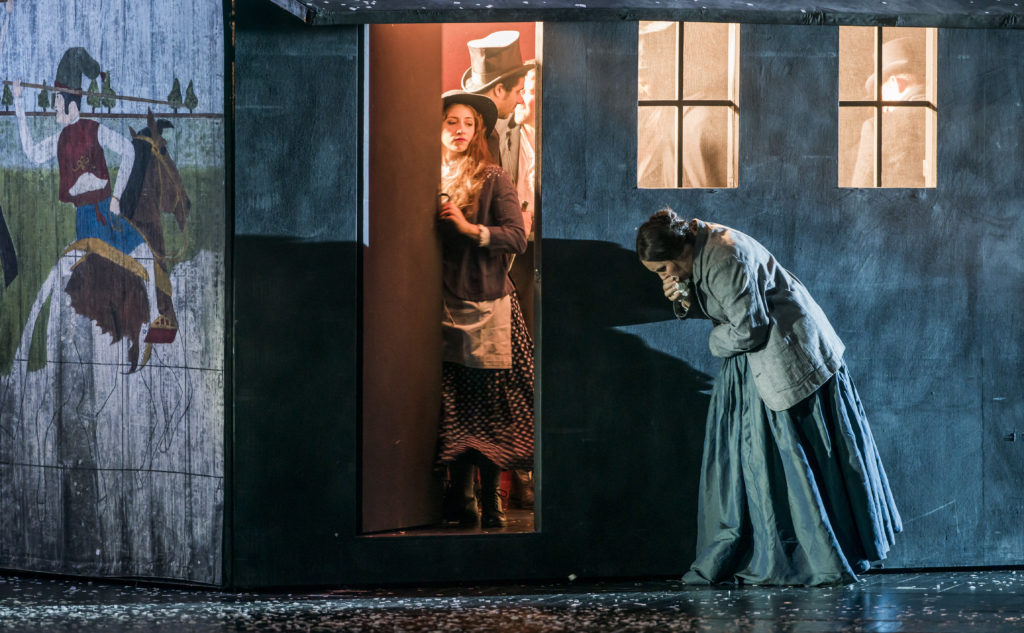
A scene from La Bohème by Puccini, Royal Opera
©Tristram Kenton, 01/20
Boy’s Zone
La Bohème, opera in four acts, music by Giacomo Puccini, libretto by Giuseppe Giacosa and Luigi Illica, Orchestra of the Royal Opera House conducted by Emmanuel Villaume, director Richard Jones, third revival of the 2017 production, Royal Opera House, Monday 20th January 2020, reviewed by Leslie Jones
La Bohème contains two contrasting views of life. One view, tinged with pessimism, is articulated by the painter Marcello, who is cynical and at times misanthropic. Referring to his on-off partner, he speaks bitterly of “…that enormous glacier, Musetta’s heart”. Musetta is avowedly attention seeking, an incorrigible flirt. Marcello contends that “Her favourite food is the heart…”. The other take on life is that embodied by the poet Rodolfo, an idealist and unrepentant romantic. He confides that “…in my happy poverty I squander like a prince my poems and songs of love”. He discerns in Mimi a kindred spirit and “…the dream I’d dream forever!” Oh, sweet age of utopias!”, Marcello opines, “You hope and believe and all seems beautiful”.
Professor of Music Alexandra Wilson notes in ‘A Timeless Appeal’ that in La Bohème, Puccini and his librettists incorporated “humorous and playful elements”, ensuring “that the darkness was offset by chinks of light…” (Official Programme). Tragedy is tempered by comic relief. Thus, in the final act, following the heart-rending episode at the Barrière d’Enfer and before Mimi returns to the garret to die, we have a laddish scene (boys behaving badly) with Colline, Marcello, Schaunard and Rodolfo engaged in banter, dancing and mock fighting. As Professor Wilson points out, during the composition of the opera, Puccini himself enjoyed “drinking and play acting” with a likeminded group of painters and writers.
In opera, a moving performance is that elusive but priceless gift. In this context, Rodolfo (tenor Charles Castronovo) and Mimi (Bulgarian soprano Sonya Yoncheva) stepped up to the plate, notably in the arias Mi chiamano Mimi (They call me Mimi) and Che gelida manina! (How cold your little hand is!), respectively. A ‘finely cast revival’, as a critic in The Stage observed. And replete with crowd pleasing elements, such as gorgeous costumes, a marching band and children exulting over the toys of Parpignol.
Dr Leslie Jones is the Editor of QR










